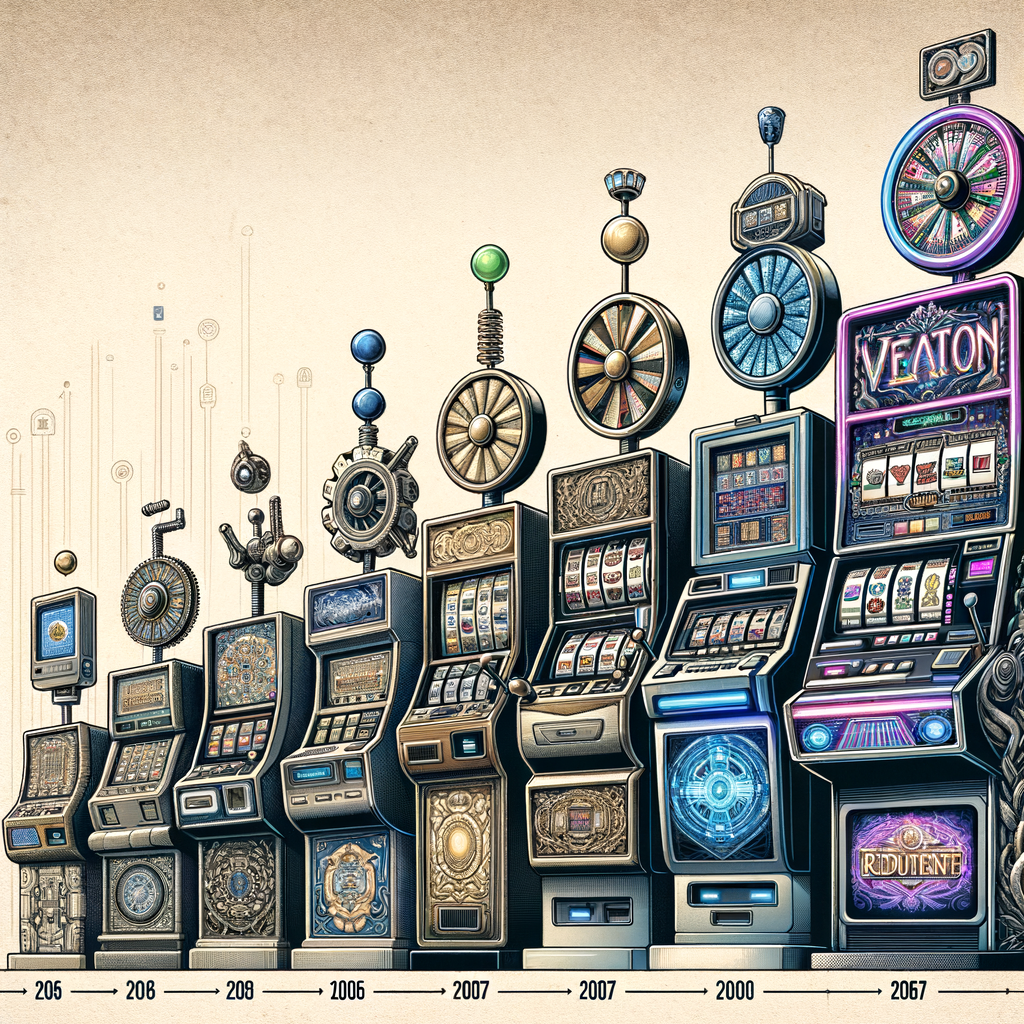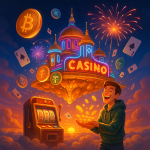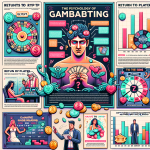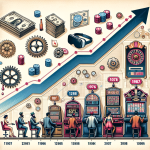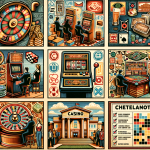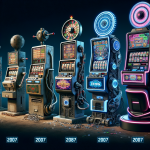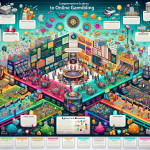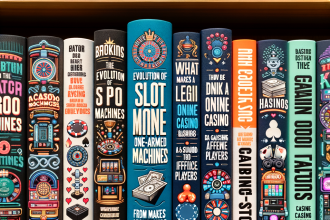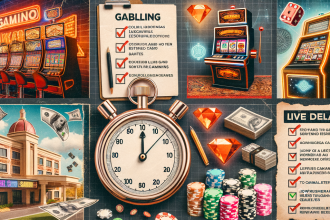Gambling has captivated human society for centuries, transcending cultures and generations. From the ancient dice games of Mesopotamia to modern online casinos, the thrill of betting has been an enduring part of human experience. But why do we engage in such seemingly risky behavior? The psychology behind gambling is intricate, intertwining emotional responses with cognitive biases. This article explores the allure of risk and the psychological mechanisms that drive our betting behavior.
The Allure of Risk: Understanding Our Betting Behavior
The Thrill of Uncertainty
At the heart of gambling lies a fundamental human attraction to uncertainty and risk. This psychological phenomenon is often termed the “thrill of the gamble.” The unpredictability associated with betting can lead to a rush of adrenaline that some individuals actively seek. This thrill is not merely about winning but also about the excitement of the unknown.
- Anticipation: Each bet places individuals in a state of heightened anticipation. The brain releases dopamine, often referred to as the “feel-good neurotransmitter,” during this period, creating a sense of pleasure linked with the potential for reward.
- Challenge and Competition: Many forms of gambling, such as poker, involve an element of skill and strategy. Players relish the challenge of outsmarting their opponents, creating a competitive atmosphere that can feel invigorating.
This craving for unpredictability is not limited to gambling; it extends to various aspects of life, including sports, financial markets, and even personal relationships. However, in gambling, the stakes are clear, and the potential rewards—both financial and emotional—are immediate, making it particularly enticing.
Social Validation and Community
Another factor contributing to the allure of gambling is social validation. Many individuals are drawn to gambling because it provides opportunities for social interaction and community bonding. Casinos and betting venues often serve as social hubs where people gather to share an experience, creating a sense of belonging.
- Shared Experiences: The communal aspect of gambling—watching a game, celebrating a win, or commiserating over a loss—can foster deep connections among participants. This camaraderie can reinforce the desire to return to these environments.
- Cultural Acceptance: In many societies, gambling is not only accepted but celebrated. Events like the Super Bowl or the Kentucky Derby see millions of people placing bets, and participating in these activities can enhance one’s social status.
This social dimension plays a crucial role in reinforcing gambling behaviors, particularly among peer groups. The desire for acceptance can lead individuals to gamble even when they might not have an intrinsic interest in the activity itself.
The Illusion of Control
A significant factor driving our betting behavior is the illusion of control—the belief that one can influence the outcome of random events. This cognitive bias is particularly prevalent in games that combine chance with skill, such as poker or sports betting.
- Skill Versus Luck: Players may overestimate their skills or strategies, believing they can sway outcomes more than they actually can. This misperception can lead to a persistence in gambling, as individuals feel empowered to influence their success.
- Gambler’s Fallacy: Many gamblers fall prey to the gambler’s fallacy, assuming that past events affect future outcomes. For example, a player may believe that if a slot machine hasn’t paid out in a while, it is ‘due’ for a win, prompting them to continue betting.
Understanding these cognitive distortions is crucial for recognizing why people remain engaged in gambling despite the inherent risks. The illusion of control can create a cycle of persistent betting, as individuals chase their perceived mastery over chance.
| Cognitive Biases in Gambling | Description |
|---|---|
| Illusion of Control | Belief that one can influence random events. |
| Gambler’s Fallacy | Misconception that past outcomes affect future results. |
| Overconfidence Bias | Overestimating one’s knowledge or skill in gambling. |
Emotional Thrills and Cognitive Biases in Gambling Choices
The Emotional Rollercoaster
Gambling is often described as an emotional rollercoaster, where players experience intense highs and lows. The emotional stakes associated with betting can amplify these feelings, making gambling especially engaging.
- Winning Streaks: Winning can elicit euphoric feelings and reinforce the desire to gamble more. This can lead to the phenomenon known as “chasing losses,” where players continue to bet in hopes of regaining lost money.
- Loss Aversion: Conversely, losses can produce significant emotional distress. The pain of losing is often more pronounced than the joy of winning, a concept known as loss aversion. This can drive players to gamble more to avoid the negative feelings associated with losses.
These emotional responses to gambling can create a feedback loop, where the highs and lows of betting keep individuals engaged despite the risks.
Cognitive Dissonance in Gambling Decisions
Cognitive dissonance often arises in the context of gambling. Players may experience discomfort when their beliefs about gambling (e.g., that they can win) clash with the reality of their losses.
- Rationalization: To alleviate this dissonance, gamblers may rationalize their decisions, convincing themselves that future bets will be successful or that they just need to “play through” a rough patch.
- Selective Memory: Some gamblers may also exhibit selective memory, focusing on their wins while downplaying or forgetting their losses. This mental shortcoming can distort their perception of their gambling behavior, making it seem more favorable than it is.
This psychological mechanism can perpetuate gambling behavior, as individuals continue to chase a narrative that reinforces their belief in their luck or skill.
The Role of Marketing and Environment
Finally, the environment in which gambling takes place plays a significant role in shaping behavior. Casinos are meticulously designed to enhance the gambling experience, with lights, sounds, and other sensory stimuli that create an immersive atmosphere.
- Marketing Strategies: Gambling establishments often deploy targeted marketing strategies that capitalize on emotional triggers. Promotions, bonuses, and loyalty programs are designed to entice players and create a sense of urgency.
- Ambient Factors: The physical environment of a casino, including layout and sound design, can heighten the excitement and encourage prolonged engagement. These factors can lead to impulsive decisions, further blurring the lines between rational thought and emotional response.
The interplay of environmental cues and cognitive biases can create an irresistible urge to gamble, making it difficult for individuals to resist the allure of betting.
Conclusion
The psychology of gambling is a complex interplay of emotional thrills, cognitive biases, and social dynamics. The allure of risk, combined with the exhilaration of uncertainty, drives many individuals to engage in betting behavior. Emotional highs and lows, coupled with the illusion of control, create a compelling narrative that keeps players coming back for more.
As we navigate the world of gambling, it is crucial to recognize these psychological mechanisms to better understand our behaviors. Awareness can empower individuals to make informed choices, mitigating the risks of problem gambling while still enjoying the thrill of the game. Understanding the psychology behind gambling not only enriches our comprehension of this age-old pastime but also sheds light on broader human behavior and decision-making processes.
